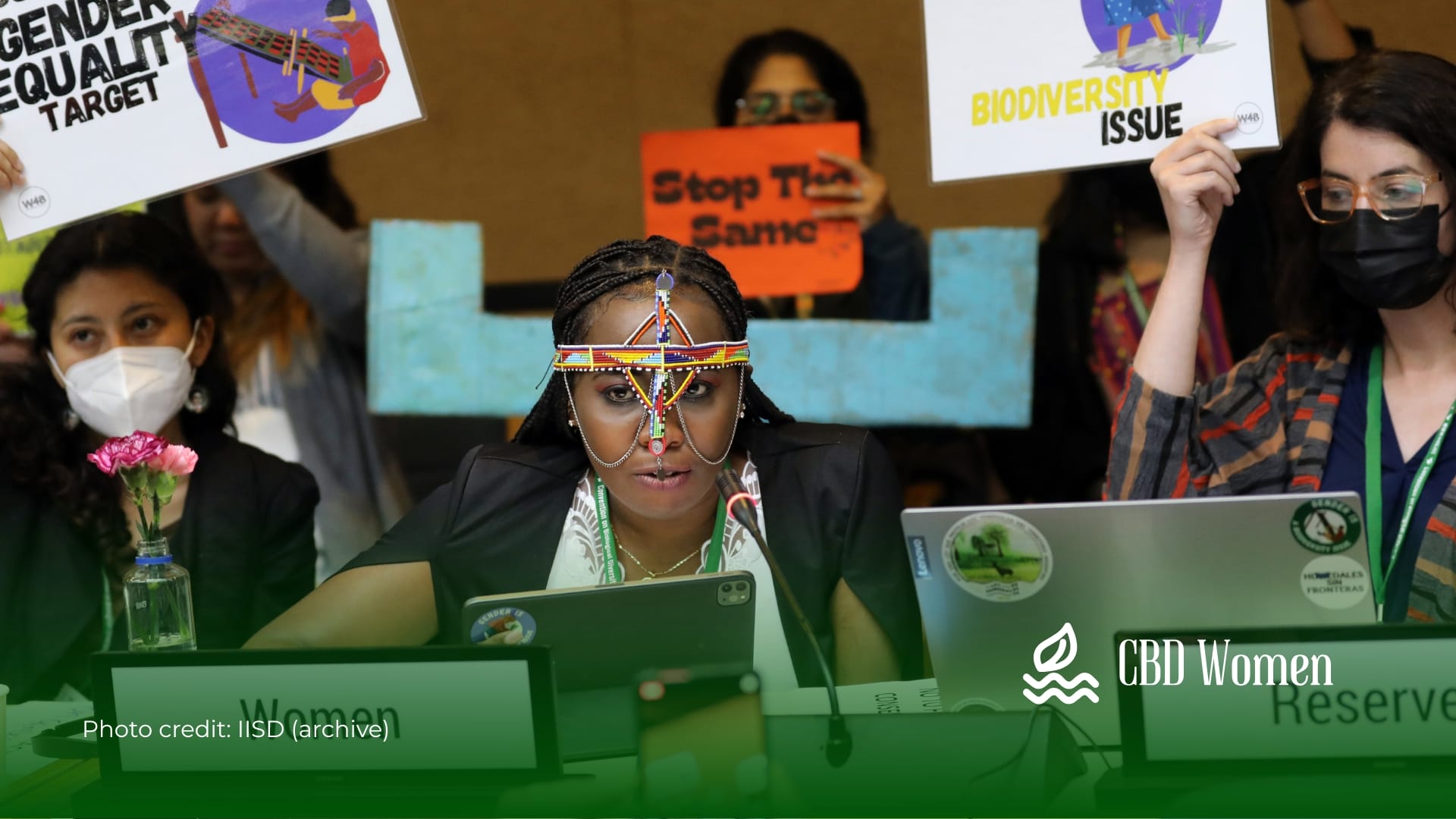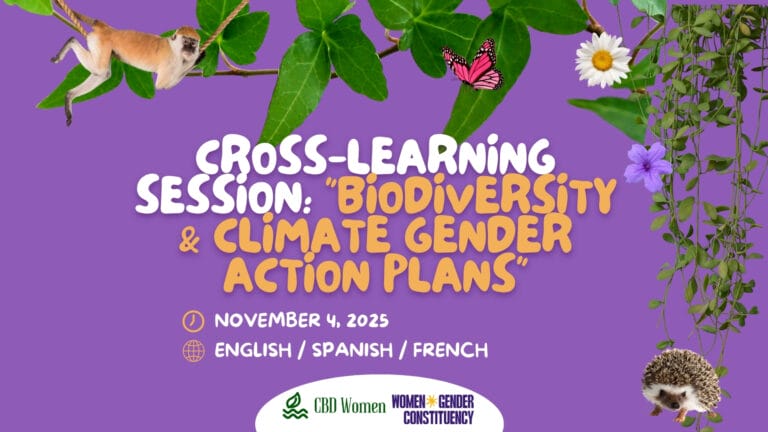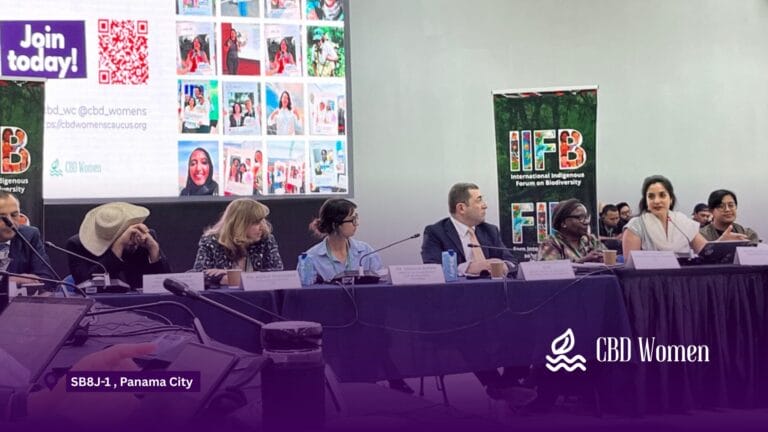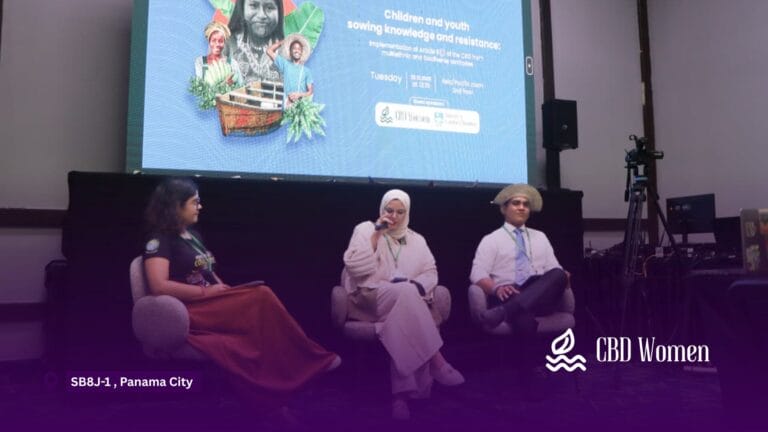By Ms. Sharon Ruthia, Convener of the East Africa Women Parliamentarians Climate Forum and CBD Women’s Caucus member
Disclaimer: The views expressed in this blog are those of the author and do not necessarily reflect the official position or opinions of the CBD Women’s Caucus
On 1st July 2025, I had the honor of representing the CBD Women’s Caucus at the National Consultation on the Gender Action Plans (GAPs) of the Rio Conventions, held in Nairobi, under the GIZ’s project framework of “Women Empowerment for Resilient Rural Livelihoods (WE4R)” in collaboration with TMG Research. Integrated into Kenya’s environmental governance calendar, the consultation gathered a diverse group of government officials from both national and county levels, civil society representatives, grassroots women leaders, development partners, and technical experts. Together, participants explored practical ways to ensure gender responsiveness is meaningfully woven into the implementation of the three Rio Conventions: biodiversity (UNCBD), climate change (UNFCCC), and desertification (UNCCD).
For the CBD Women’s Caucus, this was a critical window of opportunity to work towards COP priorities that intersect with women’s and girls’ rights and advocacy, recognizing women’s knowledge systems and governance frameworks, and ensuring that women’s and girls’ voices are embedded into decision-making at every level dealing with environment and climate governance. The matters raised complement the vision of promoting gender responsive biodiversity conservation, ensuring women’s rights to access and control natural resources, and voicing out policy decisions and actions, and the active engagement of women, including women from Indigenous peoples and local communities
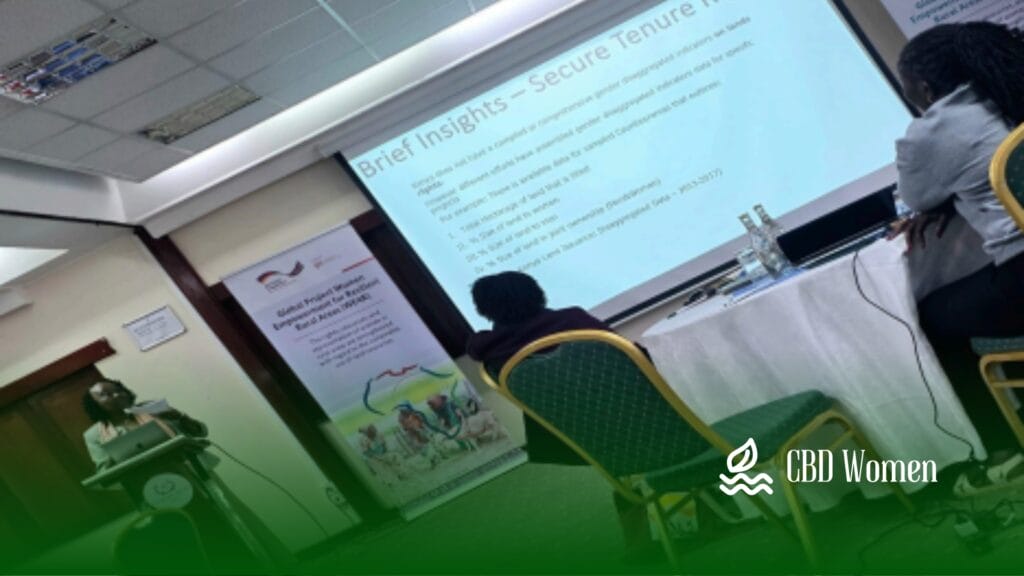
Key Commitments from the Consultation
During the consultation, the CBD WC representative pointed out that this is a unique opportunity to integrate gender considerations not just into the biodiversity frameworks, but also into the overarching climate and land governance frameworks. In doing so, Kenya would be able to develop a genuinely inclusive and efficient environmental action plan that is truly devoid of the notion of leaving anyone behind.
During the meeting, participants made the following key commitments:
- Improving collaboration between various government agencies
- Increasing the engagement of grassroots women
- Formulating a comprehensive national Gender Action Plan which incorporates all three Conventions
- Cultivating county-level engagement
- Enhancing the meaningful participation of women at the grassroots level in the development and oversight of environmental policies and action
Acknowledged Gaps:
- There is a gap in gender-disaggregated data and comparable indicators necessary for tracking progress meaningfully
- Gap in national capacity to finance gender-sensitive programs, which also requires building national capacity
For the CBD Women’s Caucus, this consultation reaffirmed the primary function that we have as a cross-link with the global commitments of biodiversity and the women’s situation at the local level. It also positioned us to partner with the government and other stakeholders of the Rio Convention, which enables us to shape Kenya’s environmental policies in ways that are more reflective of women’s concerns.

